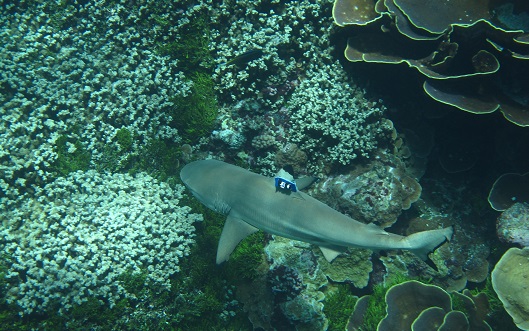‘Black box’ technology reveals the secret lives of sharks

A study by researchers at the University of St Andrews has shed new light on the hunting behaviour of sharks using ‘black box’ technology.
Sharks have always been thought to hunt at night, but until now it has been unclear why.
In the study Dr Yannis Papastamatiou of the University of St Andrews Scottish Oceans Institute used technology similar to airplane ‘black-boxes’ to study the behaviour of reef sharks at a remote Pacific atoll.
Sharks were fitted with tags that measure activity, swim speed, depth, body temperature and digestion. The researchers found that the reef sharks were indeed more active at night but particularly during the early evening, and when the tides were going out. Measurement showed that peak activity also coincided with cooling (but still warm) body temperatures and reduced digestive activity.
The study concluded that sharks are most likely to forage during the early evening as they have good night vision which gives them an advantage under nocturnal conditions but also possibly because they still have a thermal advantage in that their bodies are warmer than their prey.
“The use of these technologies allow us to determine why animals in the wild behave the way they do,” said Dr Papastamatiou. “’Black-box’ technology allows us to reveal the secret lives of sharks.”
ENDS
Notes to news editors:
‘Drivers of daily routines in an ectothermic marine predator: hunt warm, rest warmer?’ is published by PLOS ONE.
Photos are available. Contact the Communications Office.
Issued by the University of St Andrews Communications Office, 01334 467310 or [email protected]
Category Research